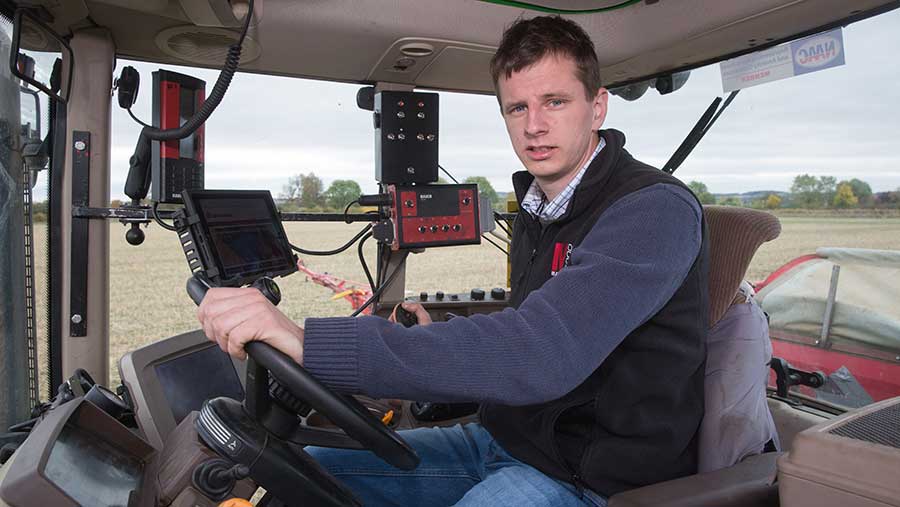Farmer Focus: New cultivation kit purchased for next season
 © Tim Scrivener
© Tim Scrivener Harvest is just around the corner now, brought forward no doubt by the recent heatwave – winter barley and second wheats changed colour very quickly during the hottest couple of days.
The winter barley has looked good all year, so hopefully has been less affected, but the second wheats, which were struggling during the early dry spell, picked up after we had a good amount of rainfall during the middle of May but have now returned to looking average.
First wheats are coping much better, although whether this is because they are a different variety, the different cultivations (or lack of) or just because they are first wheats I don’t know.
See also: Read more from our Arable Farmer Focus writers
Winter beans look good, but so do everyone’s so it will be interesting to see how they perform after the combine has been through and they have left the farm. Hopefully, there is a good demand for seed and they are all wanted for that.
I mentioned last month the decision on whether to grow oilseed rape still hadn’t been made, it now has.
Rightly or wrongly, it will be grown again, but with a reduced area with the remaining area made up of winter linseed, a new crop here, so it will be an interesting year – fingers crossed for a mild winter.
Arable event
Cereals was a day out as usual, although it was obvious visitor numbers were down, and disappointing to see yet more manufacturers and suppliers had made the decision not to attend again this year.
I think the organisers need to take note of why people and businesses are deciding not to attend, and make some changes as it would be a great shame to see the show fall out of favour and disappear as it is still the premier agricultural show for the arable industry.
It was also interesting to see the increasing number of shallow disc cultivators on show at Cereals, all doing virtually the same job, but with a fairly wide variation in prices.
I was especially impressed with the Bullock Tillage BTC which, unlike most others, comes with brakes as standard, and hydraulic suspension for transport and lifting the machine out of work in the field.
I’m looking forward to using mine when it arrives, as a new contracting service, and to lightly cultivate behind the combine to encourage blackgrass to germinate, mix and break down crop residues and level some fields before moving towards a totally no-till system on my own land.
Matt Redman operates a farming and agricultural contracting business specialising in crop spraying, Avadex application and direct drilling in Bedfordshire. He also grows cereals on a small area of tenancy land and was Farm Sprayer Operator of the Year in 2014.

